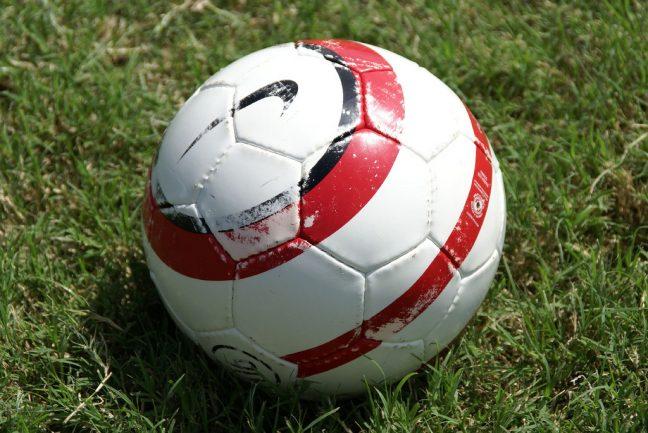Each year, the 22 various varsity sports compete in Big Ten play, all competing for the chance to win a championship. Typically, hundreds of articles are written each year following student-athletes and their successful seasons. This time, we’re focusing on the athletes who decided against continuing their careers.
To play a Division I sport is a feat in and of itself, let alone at a Big Ten school. The countless hours spent by UW student-athletes on the field practicing, performing and training while balancing schoolwork can be a lot on anyone’s plate. The time spent in the classroom and on the field is part of what makes a student-athlete so impressive.
Not all Badger student-athletes participate in their sport all four years. To learn about the decision process involved in leaving a team, The Badger Herald spoke with a former men’s soccer player, junior Matthew Comiskey.
Comiskey was part of the Whitefish Bay High School Blue Dukes men’s varsity soccer team that won three straight state finals, including an undefeated 25-0 senior season. In his senior season, Comiskey was awarded the National Player of the Year by the United Soccer Coaches, an organization previously titled the National Soccer Coaches Association of America. He was also named a First-Team All-American, North Shore Conference Player of the Year and the Milwaukee Journal Sentinel Boys State Soccer Player of the Year.
Comiskey finished his senior season with at least one goal or assist in each game, totaling 46 goals and 30 assists, including two goals in the first seven minutes of the state final rout of Oregon High School, 6–1.
After getting recruited by many Division I schools, Comiskey decided to stay home and play for the Badgers in 2018.
“I chose to attend Wisconsin because … the success of Coach Trask and his coaching staff is unquestioned,” Comiskey said via uwbadgers.com. “Not only has this team been to two straight Big 10 Championships, winning last year, but the quality of the players that eventually leave this university is as high as anywhere in the country.”
Though he didn’t see much playing time as a redshirt freshman, Comiskey trained hard to earn his playing time on the field. In 2019, he led the team in goals and was undoubtedly turning heads on the pitch, proving his talent.
After the season, Comiskey and the coaches had a rift, one that he described as “similar to what happened with Kobe King.” According to Comiskey, the coaches didn’t like his vocal leadership when things went wrong, they felt as though him standing up for the team was wrong and didn’t give him the playing time or appreciation he felt he deserved.
After thinking hard about his future, Comiskey left the team following their fall season in November and is now living with some friends in California, taking advantage of online schooling.
After playing a sport at such a high level and finding so much success, I assumed Comiskey would have had difficulties adjusting to his new life without soccer. To my surprise, he loved it. He discussed how much time he now had to hang out with friends, spend more time learning and playing his electric and acoustic guitars, do homework and be completely on top of his work — even getting a new job.
Living in California, Comiskey is taking a break from the busy life he used to live, though still working on his game.
“I am in the best soccer shape of my entire life both mentally and physically,” Comiskey said. “I keep myself busy, training for when the time comes that I want to play again, I know I’ll play again, it just won’t be for the Badgers.”
When asked if he regretted his decision, Comiskey said he still needs time to put his decision into perspective.
“When you are finished doing something you’ve been doing your whole life, initially it feels like a breath of fresh air,” Comiskey said. “You’re able to do things that before you weren’t able to do because you were limited by your commitment. But when the dust settles, you truly realize whether your love for anything that you stop doing is true or not.”
Adjusting is something student-athletes learn to do better than most other people, and while Comiskey’s story is just one of the many stories to share, it gives a good glimpse at what goes on behind the scenes in college sports.
While there could be any reason for an athlete to end their athletic career, it seems to be a constant that they keep themselves busy and surrounded by things they love to do, people they love to be with and still practicing their game, even if they aren’t returning to competitive play.


